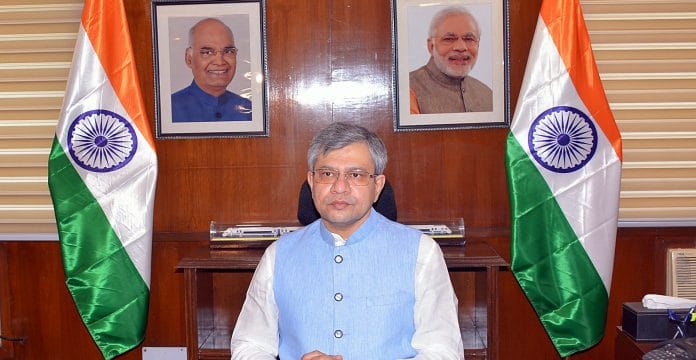New Delhi: Telecom Minister Ashwini Vaishnaw Friday said the draft Indian Telecommunications Bill, 2022, provides an enabling framework to ensure protection of users as well as fight cyber and telecom frauds.
In an interaction with the media, Vaishnaw, however, highlighted that the new Telecom Bill will not be a straitjacket solution to frauds.
“It is important that we look at this Bill as part of a larger comprehensive digital framework that we are trying to deliberate. We should not look at the Bill as an ultimate solution as it won’t be. This is just the first step towards a larger solution to this problem of fraud, we want to break those institutions and cycles,” he said.
On Wednesday, the draft Telecom Bill was released for further deliberations and comments from industry participants. Two main elements stood out in the draft — licenses for OTT platforms that provide telecom services like WhatsApp calls, Signal etc, and protection of users from fraud through a strict KYC process.
Vaishnaw, who is the Minister of Railways, Communications and Electronics & Information Technology, explained that a stringent KYC process will not only give users the option of knowing who calls them but there will also be a steady decline in cases of fraud.
“It is a citizen’s right to know who is calling them, irrespective of the platforms, so that there is a choice whether to pick up the call or not. Whether it is Signal, Facetime or WhatsApp calls, one should know who is calling them and hence we intend to take the KYC of users seriously. We have tried to make sure there are checks and balances in the KYC process, and therefore, the Bill states that a person has to unequivocally be part of the process,” he added.
It is to note that WhatsApp had approached the Delhi High Court last year against the Centre’s new Information Technology (Intermediary Guidelines and Digital Media Ethics Code) Rules, 2021, claiming that it will break its end-to-end encryption policy. The company’s petition also said that if intermediaries like WhatsApp have to find out the identity of a caller, it will have to decrypt calls/messages, which would be an “invasion of privacy”.
When asked about this issue, the minister said the government will not force companies to decrypt. He also said the government was not in a hurry to implement the new telecom rules, as deliberations will take at least 6-10 months time.
“This Bill, once implemented, will enable us to break the cyber fraud cycle, there are many who have been harassed and we intend to provide protection. The final draft will be well-knit after deliberations, it is likely that 6-10 months time will be taken for it to be in place and we are not in a hurry,” he added.
Licenses, registrations and authorisation
Vaishnaw said the draft Bill will ensure that all telecommunication networks and services will have to procure licenses, get registered for infrastructure and wireless equipment will need authorisation.
The primary intention, the minister said, was to ensure there was a “light touch regulation” to promote innovations and reduce regulatory burden on companies.
“There was confusion in the past about licenses, who were supposed to and who weren’t, and with this Bill, we will get more clarity. We have simplified the terms and conditions of licenses. By interpretation of the Indian Telegraph Act, OTT platforms already come under the purview of the Indian regulatory framework. We want to create a conducive environment for innovation and we don’t want to impose any regulatory burden on any entity. Although protection of users will always be our primary focus,” Vaishnaw added.
Also read: Govt takes down draft data anonymisation rules, critics upset about ‘disregard’ for stakeholders






